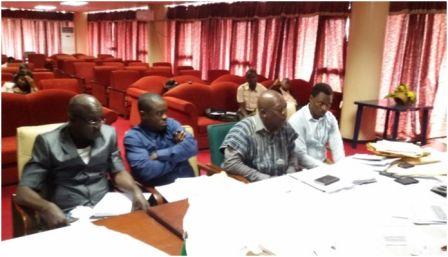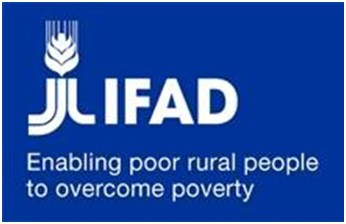British government and IFAD sign commitment for innovative climate adaptation programming
Eight million rural people to get support to reduce climate risks
Rome, 20 November 2012 – The International Fund for Agricultural Development (IFAD) and the United Kingdom (UK) signed a £147,500,000 letter of commitment today, which earmarks funds for rural communities in developing countries to prepare for climate change.
Earlier this year at the Rio+20 Earth Summit, Nick Clegg, the deputy Prime Minister of the UK announced financial support to IFAD’s Adaptation for Smallholder Agriculture Programme (ASAP), a fully-integrated programme to channel climate finance directly to smallholder farmers . The letter of commitment was signed today by Alan Duncan, Minister of State for International Development, and Kanayo F. Nwanze, President of IFAD.
Poor rural communities in developing countries are on the sharp end of climate change. Its impacts — including higher temperatures, unpredictable weather, rising sea levels, and more frequent and severe storms — create new risks for agricultural production, food security, and ecosystems. Beyond this, climate change undermines the livelihoods of millions of rural women and men in developing countries who depend on natural resources. There are growing indications that the impact of climate change is harsher than predicted even a few years ago.
Launched earlier this year, IFAD’s ASAP aims to help 8 million rural people prepare for climate change impacts. ASAP provides a new source of cofinancing to integrate climate change adaptation across IFAD’s approximately US$1billion per year of new investments.
ASAP financing goes beyond just increasing yields. It builds on IFAD’s strong track record working with rural communities on a whole host of support programs and projects such as drought and flood risk management, water efficiency and agroforestry to name a few. Back to back with these tried and trusted approaches, ASAP will add new climate risk management tools into rural development programmes. For example, improved networks of weather stations can provide farmers with more reliable seasonal forecasts and cropping calendars. Satellite imagery and Geographic Information Systems can improve understanding and monitoring of land use in a changing environment. And economic valuation of the impacts of climate change can promote more informed policy decisions.
To date about $320 million has been pledged and committed to ASAP from the governments of the UK, Canada, Belgium, among others. The programme will cofinance about one-third of IFAD’s new projects, making ASAP an ambitious programme of institutional change. Since climate change is a core part of IFAD’s work, ASAP is an integral and significant part of the Ninth Replenishment of the Fund’s resources (IFAD9).
Stay with Sierra Express Media, for your trusted place in news!
© 2012, https:. All rights reserved.




